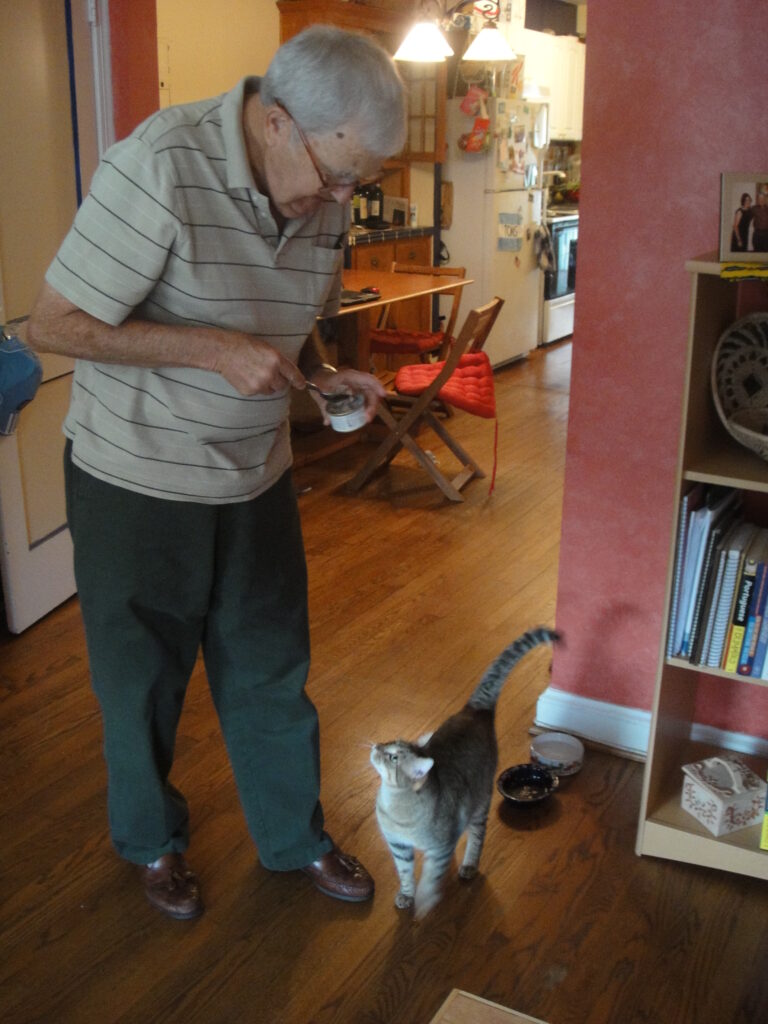
The biggest election turnout in the history of our country should have been cause for celebration. Two-thirds of the electorate found a way to vote, despite the pandemic risks.

But the nature of the results, and how many people claim to disbelieve them, tempers our excitement. Surveys differ, but comfortably half of Trumpians say the election was stolen. They assert that millions of votes were fraudulently cast for Biden in a grand conspiracy that involved a dozen states and hundreds of officials. If people are screeching such nonsense, they’re petrified of what a Democrat back in the White House means.
The other side, Biden voters, we just look across the aisle in abject incredulity: HOW could that narcissistic, incompetent, racist, misogynistic LIAR get 76m people to vote for him?
What’s even scarier: if it wasn’t Trump in office, and if there hadn’t been an epidemic, could the Democrats have gotten 81 million votes? I’m afraid the answer is no. Desperation brought people to the polls, but there will be no automatic party loyalty. Somehow, Democrats are now the Fat Cats, controlling universities and media and culture (true or not true, or true and not true, that is how the party is portrayed and seen.)
See how the Orange Menace has messed us up, twisted us around? Have you heard the saying that, when you’re pointing at someone, you have three fingers pointed back at yourself. (Try it!) And he has been masterful at this, in terms of saying whatever the bleeding hell he wants to say, and turning it into “truth enough” for his followers. We’re banishing him from the mainstream, so we have to take this chance to set the ship of state right again.
So how do we get to truth?
Church leaders used to interpret truth, back when people were much more isolated. If you, in your village, determined that it was best to plant after the last frost, and others determined the same, and you all discussed it over a pint of mead and watched it for a few growing seasons, well, it would count as “true.” But for society-level truths – what do we believe about how the world came to be, for example – “truth” came from trusting a single body somewhere far away.
The printing press disrupted how people established truths. Instead of a centralized and authoritarian body saying X, not Y, “thinkers” could put a “truth” out there in the world. (Eye-opening articles on this here and here.) It was up to others to debunk it, praise it, ignore it, or build on it. From the resulting (evolving) agreement about what was “true,” we’ve built Western Civilization. Not that there aren’t disagreements about what’s true and what’s not, but there was an agreed-upon way of resolving that question – the proposition goes out to everybody, and everybody gets to check it and discuss it and eventually decide whether it’s true or not.
How much does your ox weigh, mister?
One of my favorite websites for weird information is Futility Closet. They published something this week that is really smart: people decide things better as a group than they do individually. Disagreement improves accuracy. In a famous experiment, researchers asked a crowd to guess the weight of an ox. While individual responses could be pretty wacky, the aggregate wisdom of the responses averaged out rather well. Think of it as ancient crowd-sourcing.
Even a single person making multiple estimates will be likelier to get to the right answer – particularly “when asked to consider a question from the perspective of someone they often disagree with.” (Philippe van de Calseyde and Emir Efendić, “Taking a Disagreeing Perspective Improves the Accuracy of People’s Quantitative Estimates,” PsyArXiv, Nov. 15, 2019.) More about that below.
Of course that’s not exactly how it worked (works)
I’ve left out a key characteristic of how we decided truth: it wasn’t “everybody” – not by a long shot. The truth-deciders group included only white, propertied men, sidelining most of the population. Our most shameful history, in fact, comes directly from authorizing only *some* people to debate the truth. I’m talking slavery, in which enough powerful people said that Black Africans were not human that it became “truth.” Manifest Destiny falls in that category. Excluding women and turning them into chattel. All so the white, propertied men, could have more money, more land, more potential, better lives, easier living, and a clean conscience when they went to bed at night.
Waves of truth-tellers from among those marginalized groups have pushed against the white-propertied-male truth for centuries, and we’ve made great strides while still having miles to go before we sleep. We are far from finished with expanding the right to engage in this society-level sharing and thinking about what matters, and what’s true. But we know that being inclusive is essential, and we are on it. What’s really valuable here, too, is that we KNOW that giving white, propertied men the sole right to decide what is true leads to destruction, ignominy, suffering, war… and all the -isms you can think of.
And if we want to get back to truth on the left, we need to return to the core Democratic value of helping underdogs, including people for whom jobs have emigrated, for whom education sucks, for whom opportunities are straitened. We had fairly unfettered globalization that really beat up the working class, and we need to figure out how to reduce the damage.
New “truth” on the right
But wait, the white, propertied men weren’t done talking, were they? The talk radio bigots of the 1990s gave rise to the Fox News of the 2000s and an internally- agreed set of truths. Through Obama’s presidency the claims got wilder and the racism became even more overt, and the “exciting new social media” fertilized hate. Russian trolls ably assisted, then, the 2016 presidential campaign – who cynically wheeled alt-truth Trojan horses into both camps, then sat back with popcorn to watch us tear ourselves apart.
The presidency of the Orange Menace cemented this mirror-grade “truth” system, legitimizing it, normalizing it – and now we’re reaping the poison rewards. There is a large enough, loud enough, and powerful enough counter-truth, thanks to the Evil-in-Chief.

My friend Tom wrote a blog post at his consulting company’s site, about polarization. He says we’re hard-wired to latch onto in-group status, which has made it all the easier for us to get to the horrible spot we’re in. In one bit of research, study groups were formed to solve a problem. The researchers called the groups either a “discussion group” or a “negotiation group”, but all the other conditions were the same. Just that word, negotiation, was enough to put the participants in those groups into battle posture, a harsher stance against the “other” with whom they had to “negotiate” – in this case, in their own problem-solving group! If we can make adversaries of our own team, we obviously sway toward polarization awfully easily.
So what do we do?
Keep looking for truth, I guess. Keep reading, keep our senses open and alert, avoid echo chambers, and use sources that are more trustworthy. No source is objective – there’s no such thing. But individually we can prioritize the ones that have built their reputation on fact-checking, on ethics, and on the essential and ongoing disagreements that get us closer to the ox’s “true” weight.
We also have to get over the umbrage. I have a mountain of umbrage myself. I’m not the first but I’m one of the loudest saying, “I just don’t understand how anyone could vote for Trump once, much less twice”? If you’ve got Trump fans in your family, haven’t you thought, “How could we be related?” Have you unfriended any of them, or they you? My family has – I’ve lost touch with some because of it, and that’s sad – but part of me is content to make them the “other” and say, “What would we have to talk about anyway?” Essentially I’ve written them off, and they me. But isn’t it horrid that our interwoven life history no longer matters?
But back to the ox, and how even one person making multiple estimates is likelier to get to the right answer? That’s my challenge now – to make new estimates. If I want to have my cousin in my life, or a country half-full of Trump fans in my polity, I’m going to have to. I think that means understanding their disaffection more than I have, even while I retain the belief that racism is an enormous part of it.
Racism, I believe, weaves into the “distrust and anxiety” about where they are in this world. David Brooks’ article, also cited above, says we can only reduce that “first by contact, reducing the social chasm between the members of the epistemic regime and those who feel so alienated from it. And second, it can be done by policy, by making life more secure for those without a college degree. Rebuilding trust is, obviously, the work of a generation.”
Reducing distrust and anxiety: contact
People aren’t born racists – we’ve woven it into our society in a million ways, and into our hearts and minds, but it’s not some sort of natural state of who we are. You can unlearn it. But as one of my writing heroes, Chuck Wendig, puts it: “the only good way out of a hole is to quite digging and start climbing, but then you have to admit, oops, I fell into a hole of my own making, and that’s not something people like to admit.” We do not have to coddle or facilitate racism and we can call it when we see it. But if we’re going to have a whole country instead of two country-halves that interlace only grudgingly, we’re going to have to listen, too.
Because not all Trumpians are racist a-holes. Some want traditionally Republican policies so much that they’ll put up with him. Others see the demographics for their party and are willing to put up with him to keep their seat at the table. Those that are screeching about a stolen election, we’re not going to be able to turn back to the truth, I fear. But someone who’s genuinely in favor of limited government and fears how Democrats will do the opposite, or someone who feels their piece of the middle class pie shrinking and wants to believe what Trump says about bringing jobs home – they might listen if the Democrats do more than talk a good game about rising inequity.
I hope having Trump out of the White House will push his messages out of the mainstream. Yeah, you can go to OANN and reddit QAnon threads and whatever other sycophantic slop-seller that’s out there, or go to Parler instead of Facebook. But will the whole list of 76 million Trump voters go there? Nah. The mainstream is the mainstream for a reason – it’s easy. You don’t have to have a special password, and all your friends and family are already there. Those sites are a threat, and will continue to spread disinformation with the goal of putting their orange hero back in office – sooner or later. But if they’re off the daily damn news, and that alone is a help.
Reducing distrust and anxiety: policy
At the same time, that disaffection needs looking into. The problem isn’t going away. A recent study shows that up to 30 million people in the U.S. have the skills (already!) to earn 70% more.
Can that sink in just for a second? (And if you want a news version of the study, look here.)
That’s a lot of boats that could be lifted. No college degree necessary. People could be making more, have more stability, have better prospects – but they don’t. How can we design policy that would help them take the short steps necessary to get there? That would be a great start.
Student loan forgiveness – or, hey, just make in-state tuition lower by returning to the days of subsidizing state schools – is another policy to discuss. Taking back a little of unions’ power from corporations is another. Reigning in runaway corporate compensation is another. On the popularity scale, there’s plenty to fear here. But there are ways to show what our Democratic priorities truly are that make a difference for the people that went to the Dark Side. We just have to be willing to talk, and to decide together what is true and what is not.



Blog Comments
Jane Townsend
14 December, 2020 at 5:39 pm
Long post, lots to think about! Thank you for your thoughtful take on this complicated issue (or set of issues).